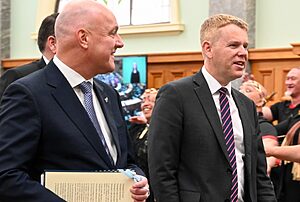Summarised by Centrist
The term “mRNA” gained widespread recognition with the introduction of Pfizer’s and Moderna’s COVID vaccines. mRNA, which stands for messenger ribonucleic acid, “is a type of genetic material that gives cells in our bodies instructions to make specific proteins,” writes University of Auckland’s John Fraser.
In “Beyond COVID vaccines: what else could mRNA technology do for our health?” he goes over Katalin Karikó and Drew Weissman’s mRNA research, which netted them a Nobel Prize in 2023.
Fraser says that their research, which was pivotal in COVID vaccine development, holds broader potential including better vaccines for various infectious diseases, gene therapies and potentially revolutionising cancer treatment.
He notes that challenges persist, such as mRNA’s short lifespan in cells, but ongoing research could herald a new frontier in medical therapeutics.
Read the full story over at The Conversation



















